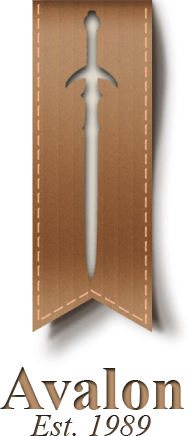Crafting Through Personal Labours
All Avalonians gain a smattering of crafting ability through the labours skill. This ability is primarily used to create everyday items such as clothing, musical instruments, tools for further labours or farming and other miscellanous equipment. Crafting items in this manner requires commodities specific to the desired item, e.g. fabrics for clothes, metals and furs for instruments, wood for pipes and so forth and most require a template for those without crowned ultimate in their labours skill.
On occasion, existing templates for rare items can be difficult or impossible to track down; hoarded, hidden or simply lost to time. There exist several smithies within the land that - for a hefty price - are able to provide templates for use in later crafting. Experimentation and exploration is advised.
Many of these craftable items are original player designs; written and submitted to be created and used within Avalon and as such, some designs are secret, unique to an individual or organisation and cannot be reproduced except by permission.
Syntax: CRAFT followed by parameters
Typing CRAFT in Avalon will display a list of all base items that are able to be created, e.g. knives, cauldrons or pipes.
2002h, 2002m e ---craft
You are able to use your CRAFT to create the following items: Stick, Wand, Crucifix, Watch, Tankard, Knife, Bracelet, Applepie, Flute, Cloak, Box, Eagle, Medallion, Robe, Brazier, Brooch, Barrel, Book, Vase, Mirror, Serpent, Glass, Harp, Lute, Bar, Horseshoe, Ring, Cake, Bun, Slice, Surcoat, Bell, Kit, Boots, Tinderbox, Staff, Necklace, Cauldron, Table, Hairpin, Lyre, Canoe, Mist, Hammer, Shirt, Coat, Door, Gauntlets, Quiver, Shoes, Bowl, Snowshoes, Drumstick, Tabor, Tabla, Tambourine, Clarinet, Guitar, Viol, Fife, Viol bow, Lantern, Rod, Cup, Coffin, Blade, Hat, Pole, Chest, Shorts, Handkerchief, Belt, Wreath, Bucket, Case, Globe, Bangle, Sign, Painting, Scroll, Nightgown, Headband, Pipe, Horn, Tunic, Trousers, Nails, Saw, Paint, Coop, Sack, Chicken, Hood, Pouch, Axe, Backpack, Dress, Whip, Fishcake, Fish, Scabbard, Mask, Pan-pipe, Trumpet, Pork, Pitta, Earring, Suit, Dart, Waistcoat, Slippers, Jacket, Pyjamas, Umbrella, Wrap, Pants, Cushion, Blanket, Bed, Cape, Spade, Garland, Treaty, Sash, Oboe, Potato, Potatopie, Cage, Crucible, Pan, Wheel, Auger, Ox, Bung, Plough, Smoker, Pick, Crabpot, Fishing-rod, Line, Wheelbarrow, Seedbelt, Feather, Cart, Wagon, Scales, Whistle, Trombone, Oar, Vat, Jumper, Bikini, Dulcimer, Spellbook, Badge.
155 total types available.
Syntax: CRAFT < base-item >
These are in turn broken down into a list of different designs of that same item, for instance a blow-pipe and a wooden pipe, a huge cauldron and a demon-summoning cauldron. Typing CRAFT followed by the name of the base item will reveal a list of designs visible to you:
2002h, 2002m aex ---craft pipe
1. "a wooden pipe" (open).
2. "a long metal pipe" (open).
3. "a blowpipe".
*4. "an ebony pipe".
5. "an ivory pipe".
Total of five types for the "Pipe" range.
Syntax: CRAFT < base-item > < design number >
To review the requisite components for creating an item, along with its description, type CRAFT followed by the base-item name followed by its design number:
2002h 2002m aex ---craft pipe 1
It is an open craft object. It does not require a template.
1. "a wooden pipe".
Description as seen in a location:
A well travelled wooden pipe lies here set with a bronze mouthpiece.
Description when examined:
The pipe is a effectively a foot-long wooden cone, with a bowl in the wider end. Moulded onto the pipe is the symbol for Sylvanus, god of the earth in burnished bronze and the mouthpiece is also wood reinforced with moulded bronze for years of smooth draw and easy pull. A strange sweet smell lingers in the bowl of the pipe, which somehow still feels hot to the touch.
This pipe has no known designer.
It requires 1 of the wood commodity.
It requires 1 of the clay commodity.
Syntax: CRAFT CREATE < base-item > < design number >
Finally, creation of the item itself is done through typing CRAFT CREATE followed by the base-item name and its design number:
2002h, 2002m aex ---craft create pipe 1
You utilise your labours and send your tools flish-flashing about the task of creating a new pipe. Presently you have completed a wooden pipe, and you present your handiwork for all to see.

